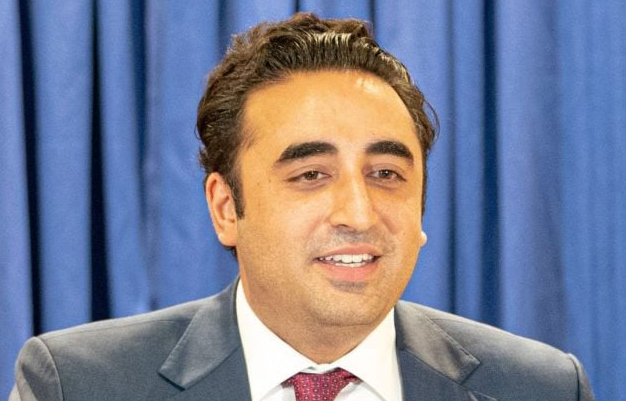Foreign Minister Bilawal Bhutto Zardari along with a delegation has recently paid a four-day state visit to Japan. During his visit, Foreign Minister met with the top Japanese leadership including his Japanese counterpart, Hayashi Yoshimasa, Prime Minister Fumio Kishida, Japanese National Secuirty Advisor Takeo Akiba, and other high-level dignitaries along with interacting at the Asian Development Bank Institute, a Tokyo based renowned think tank based in Japan.
During his joint press stakeout with his Japanese counterpart, Foreign Minister Bilawal Bhutto Zardari told the media that Pakistan and Japan have agreed to further deepen their bilateral cooperation in diverse fields including trade, investment, and Information Technology. According to him, the two sides also agreed to enhance cooperation in mutually beneficial people-to-people contact, human resource development, tourism, agriculture, Solar energy, desalination, water purification, and reconstruction of houses in the flood-affected areas of Pakistan. Meanwhile, the two sides agreed to conduct language skills assessment tests for the Japanese language in Pakistan to facilitate the export of a skilled workforce to a major economic and industrial power in the world.
Pakistan and Japan had longstanding and cordial bilateral relations since the early years of the country’s independence in 1947. Both countries had worked closely in multiple domains over the past decades and there is tremendous potential to enhance bilateral collaboration in trade, investment, agriculture, infrastructure development, services delivery, automobile industry, energy sector, education, people-to-people contacts, and other areas of mutual interests. Both nations are eager to forge a long-term and sustainable partnership to benefit from each other expertise, resources, and knowledge. Presently, there is an enormous attraction for Japanese firms in Pakistan’s developing blue economy, China Pakistan Economic Corridor (CPEC) related projects including Special Economic Zones (SEZs), energy projects, waste management in megacities including Karachi, Lahore, Rawalpindi, Multan, Faisalabad, and Hyderabad. At the same time, Pakistan is home to nearly 230 million people, two-thirds comprising below 30 years of age, an educated and skilled youth workforce that can play an important role in the development and growth of any nation including Japan. Pakistan is eager to leverage its geostrategic location at the crossroad of Central Asia and South Asia to foster regional connectivity, economic growth, regional transnational trade, and economic cooperation in the region and beyond through its road and rail infrastructure and related facilities that have no alternative so far.
Apparently, Pakistan has presented its case in a very impressive manner by shedding away from the ongoing global rivalry and cold war-style confrontation between major powers and completely shifting its vision from geopolitics to geoeconomics through enhanced economic and trade cooperation with regional and extra-regional players. Pakistan and Japan could leverage their respective strengths through joint efforts and cooperation in political affairs, to realize the untapped potential in trade and investment, poverty elevation, climate change, global health, and other aspects of mutual and regional importance. In this contemporary world, each nation is dependent on other countries in one or the other way, Pakistan and Japan had a history of teamwork and cooperation, and expansion in this journey will surely benefit both nations in the future.
Foreign Minister Bilawal Bhutto Zardari’s Japan tour is very significant in many ways. It was an important diplomatic expedition of the Foreign Minister to the East Asia region that has been largely ignored over the past year. At the same time, it attracted massive public criticism and outrage at home and abroad, because an important member of the Zardari family and younger sister of Foreign Minister Bilawal Bhutto Zardari had been spotted alongside Mr. Bhutto during multiple official events in Tokyo. Civil society, media, and independent analysts had raised their voices agaisnt the coalition government and Foreign Minister Bilawal Bhutto Zardari, for promoting nepotism, abusing authority and misusing national resources. Although, the PPP media cell has tried to clarify the situation by saying that Aseefa Bhutto-Zardari, who accompanied Foreign Minister Bilawal Bhutto-Zardari to Japan, was on a private visit and bearing her expenses. However, this explanation is totally insufficient and could not alter the fact that government resources or the Foreign Minister’s position had been used to make it possible that his family member travel with or accompanied the state delegation at important movements.
In fact, Foreign Minister Bilawal Bhutto had been under stern criticism from the opposition for his weeklong tours of foreign nations and excessive ambassadorial work in the past year. The opposition criticized him for wasting taxpayers’ money on his unnecessary foreign trips of the least importance that otherwise could be managed through Pakistani envoys in host nations/ multilateral forums. However, the Foreign Office clarified to the nation that the young Foreign Minister had paid for all his foreign trips from his pocket and no extra financial burden had been put on the national exchequer in this regard. It is worth praising that Bilawal has almost completed his ambassadorial internship successfully and now his younger sister is preparing to take this assignment if PPP succeded in securing a majority in the next election.
Unluckily, family politics, feudalism, and institutional cartelization are those realities that are the core reasons for Pakistan’s economic and constitutional setback in the contemporary world. Several nations that got independence after Pakistan and numerous institutions/ businesses that took assistance/guidance from Pakistani state institutions to get startup are now at the peak in their fields while the Pakistani nation has plunged into the darkness of corruption, nepotism, moral and institutional depletion. Because feudal, dictators and despots never legislated in favor of the public and always protected their communal, and party interests throughout history. In fact, no real change or improvement is possible until and unless people raise their voices for their rights, and stand up agaisnt social injustices, corruption, feudalism, and family politics, while ultimately using their power of the vote to defeat such menaces.







